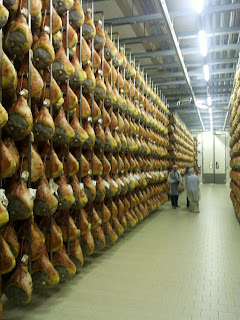As someone obsessed by food I reflect on the culinary aspects of this too, and what will stretch through the week. Thus I always buy some 500g bags of rice, and of penne, along with tinned toms or sauces that will help form the basis of several meals. I hope it's not too condescending that I worry some people needing these goods may prefer the canned stuff I include, as it can be cooked in seconds - just warmed through - or even eaten as it comes if they've been cut off, or have no working cooking facilities; and that some may not have the culinary knowledge to cook pasta so it's palatable, as successive governments have reduced cookery teaching to next to nothing in our schools, and fast food culture has done its worst too.
Monday's run included some pudding stuff - rice pudding, custard, tins of fruit - as food should be about lifting the spirits too, and a sweet treat is great at that. In case anyone is thinking ill of me, I don't do this for any feelings of innate superiority, or that it makes me feel good. It actually doesn't. Softie that I am, after every run I feel down that such places and services are necessary. But that's no reason to stop trying to help, even if it's only a tiny bit. Atheist that I am, I commend the Salvation Army to anyone reading this, and hope if you have the means you will make the occasional food bank donation to them, or their equivalents.

